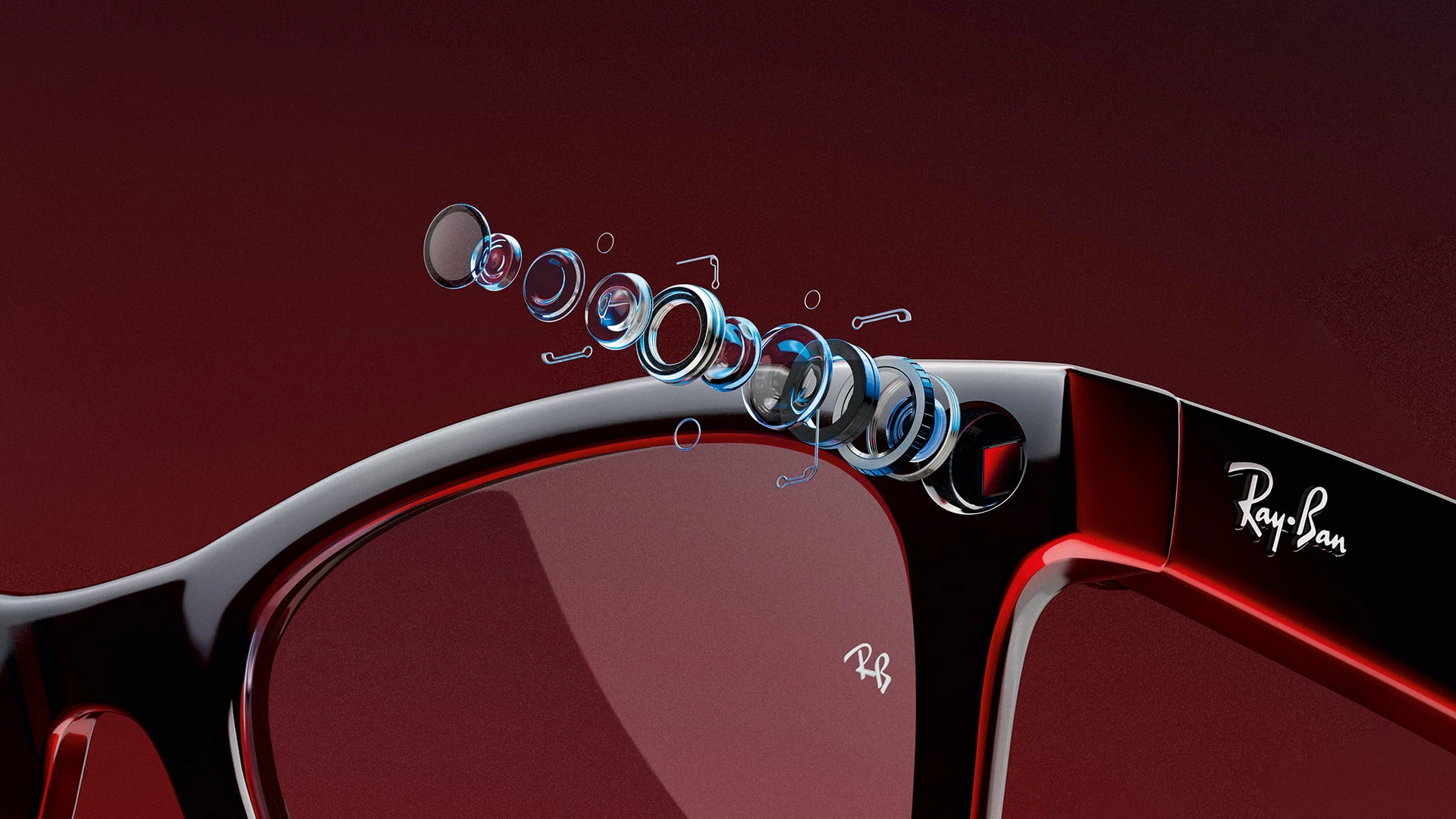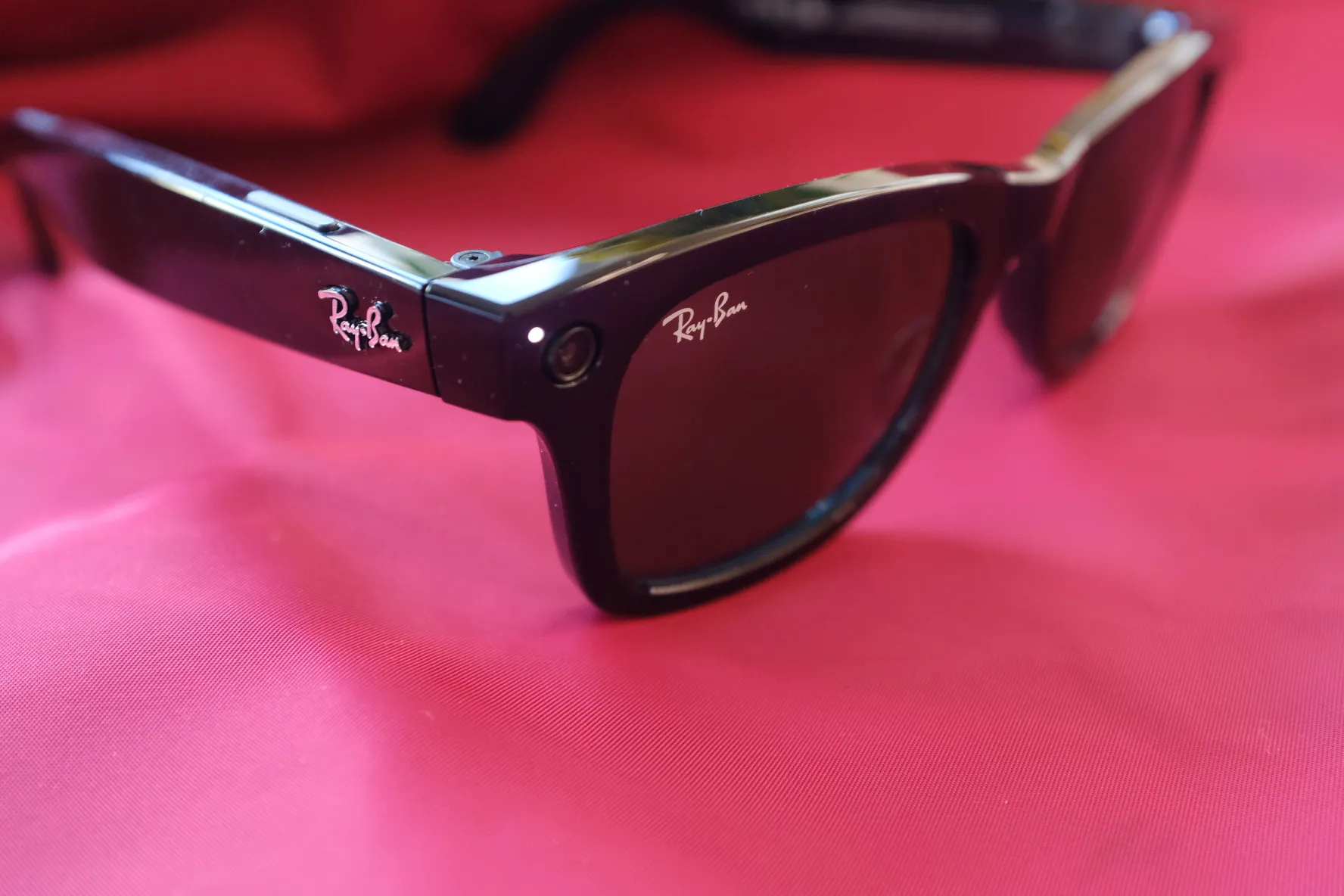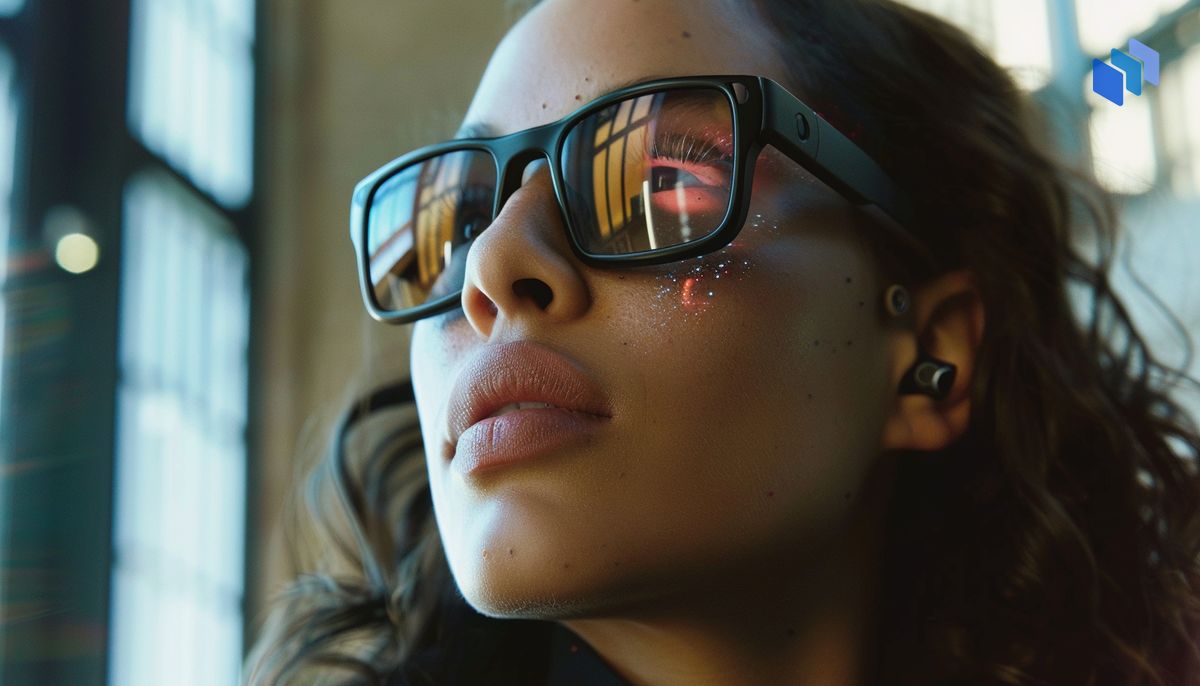In a bold move that blends cutting-edge technology with everyday fashion, Meta has introduced new AI functionalities to its Ray-Ban branded smart glasses, raising both eyebrows and concerns about privacy. This innovative product now supports video for AI purposes and offers features designed to provide “continuous real-time help.” But as these glasses capture more of our daily lives, critical questions arise about the privacy implications and the potential uses of this data.

Privacy Under the Lens: What Happens to Your Data?
Meta’s Ray-Ban smart glasses, a stylish fusion of technology and traditional eyewear, have recently been upgraded to not just see but understand the world around their wearers. These glasses, equipped with a camera, can now assist users in everything from locating their parked cars to picking out clothes. However, the enhancement of these features has ignited a debate about the destination and utilization of the data captured.
During a probing inquiry by TechCrunch, Meta was asked whether images taken by these smart glasses were being used to train their AI models. Meta’s response was anything but transparent. Anuj Kumar, a senior director involved with AI wearables at Meta, stated, “We’re not publicly discussing that.” This non-disclosure has led to speculation that Meta could very well be using this private data to feed its AI—data that differs significantly from the public images on platforms like Instagram and Facebook, which Meta admits to using for training its algorithms.

The Thin Line Between Assistance and Surveillance
The primary concern here isn’t just about the collection of data, but its potential scope. The new AI features of the Meta Glasses mean that simply asking for help on mundane tasks like choosing what to wear could result in capturing and uploading numerous images of private spaces to Meta’s servers. Unlike typical social media interactions where users consciously choose to share content, these images are gathered passively, without explicit intent or constant awareness from the user.
It’s one thing to share a photo on social media, but it’s entirely another for a camera to quietly document your private moments for AI training purposes without clear consent. This blurring of lines between public and private data capture brings to light significant ethical considerations.

A Call for Clarity and Transparency
If Meta is indeed leveraging images captured through its smart glasses for AI development, the implications for user privacy are vast and potentially unsettling. The ambiguity of Meta’s statements only adds to the unease, prompting calls for more transparency. Users deserve to know whether their everyday moments are being converted into data points for AI learning. Given the potential for these devices to silently gather personal data, clarity from Meta is not just expected—it’s imperative. If Meta’s intentions are benign, a clear and definitive statement could alleviate consumer fears. However, the absence of such confirmation leaves room for speculation and distrust, casting a shadow over the adoption of this futuristic eyewear.

As technology continues to integrate more deeply into our personal lives, the balance between innovation and privacy remains a contentious battleground. The debate surrounding Meta’s Ray-Ban smart glasses exemplifies the broader concerns about privacy in the age of AI and IoT. As consumers, it’s crucial to stay informed and critically aware of how our data is being used, or possibly misused, under the guise of convenience and innovation.










